Memorial to the Abolition of Slavery, Nantes
vf.jpg)
Memorial to the Abolition of Slavery, Nantes ©Karine Garcia-Lebailly
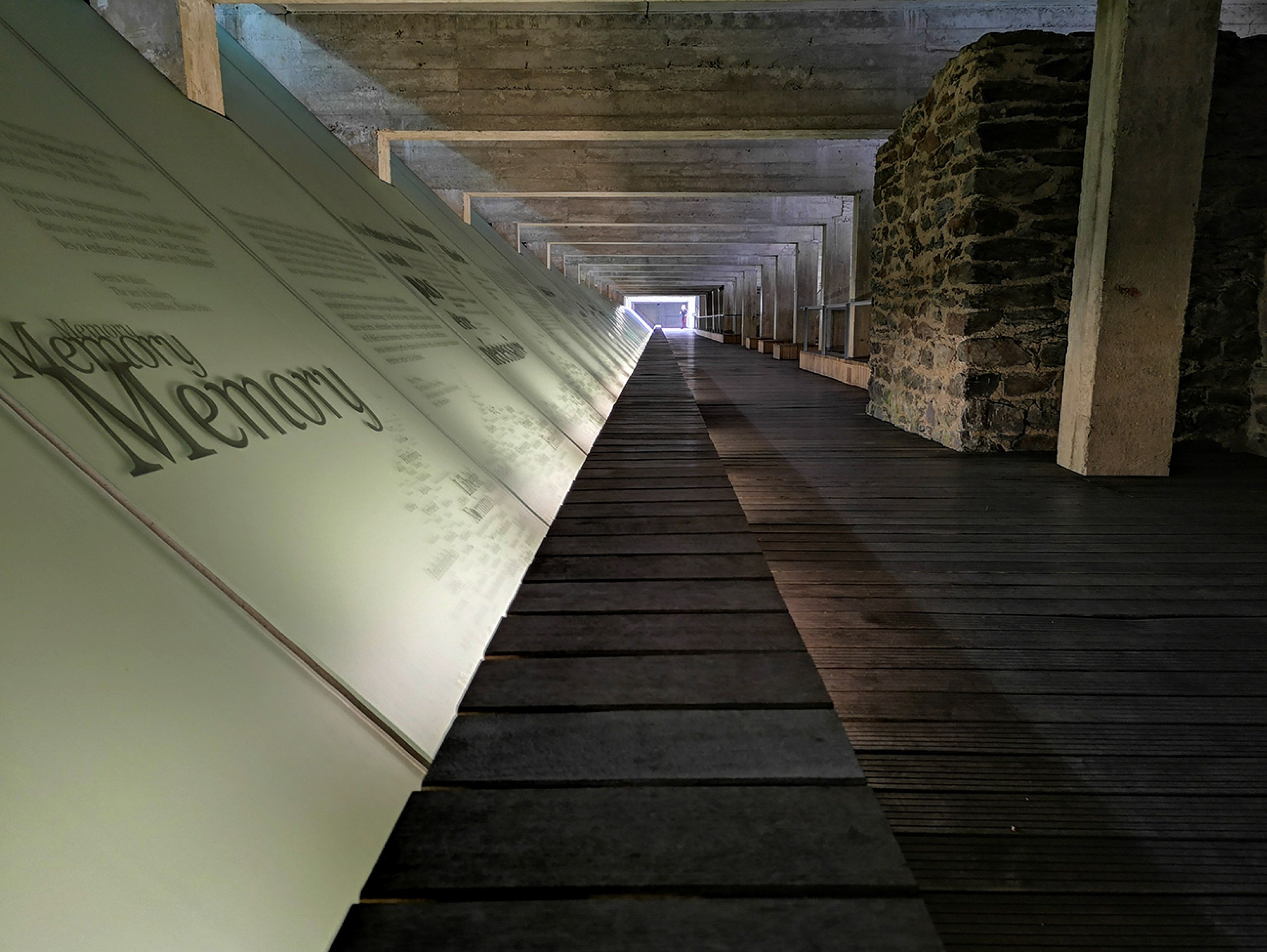
Memorial to the Abolition of Slavery, Nantes ©Karine Garcia-Lebailly
This monument is one of the most important in the world dedicated to the Atlantic slave trade, slavery and its abolition. The Memorial solemnly acknowledges Nantes’ relationship with its past as the French leading port for the human slave trade in the 18th and 19th centuries. It also pays tributes to those who fought and those who continue to fight against slavery throughout the world. The artists behind the project, Krzysztof Wodiczko - plastic artist - and Julian Bonder - architect - imagined the place as a “metaphorical and emotional evocation of the struggle, mainly historical but still relevant today regarding the abolition of slavery”. Nothing is left to chance : the light, the reflections of the river, the choice of materials combining stone from the old quay, the use of wood and raw concrete… This subtle immersion beneath the docks carries an universal message of solidarity and fraternity for future generations, asserting the value of human rights. As an extension of the underground route, a dedicated area puts the Atlantic slave trade in context: there are historical and geographical landmarks but also maps, figures and a chronology which highlight the scope of what happened as well as the struggle against enslavement in the past and nowadays.
Notice : © Château des ducs de Bretagne – Musée d’histoire de Nantes
Symbolic places for collective memory
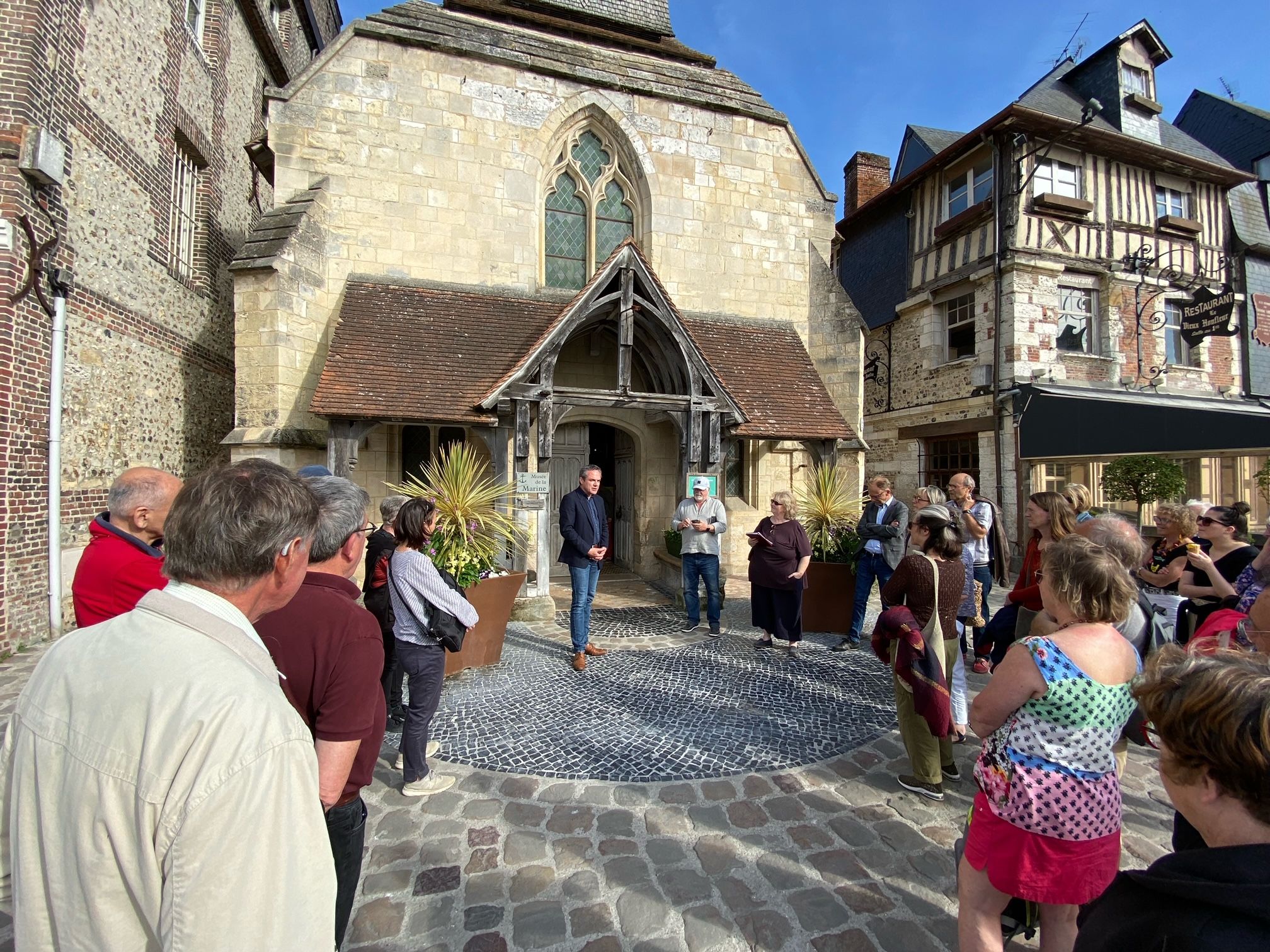
On Tuesday May, 10th 2022, the city of Honfleur took part for the first time in the national day of remembrance of the slave trade, slavery and their abolition, with a guided tour of the city organized to discover the sites linked to this period in its history.
(c) Musée de Honfleur
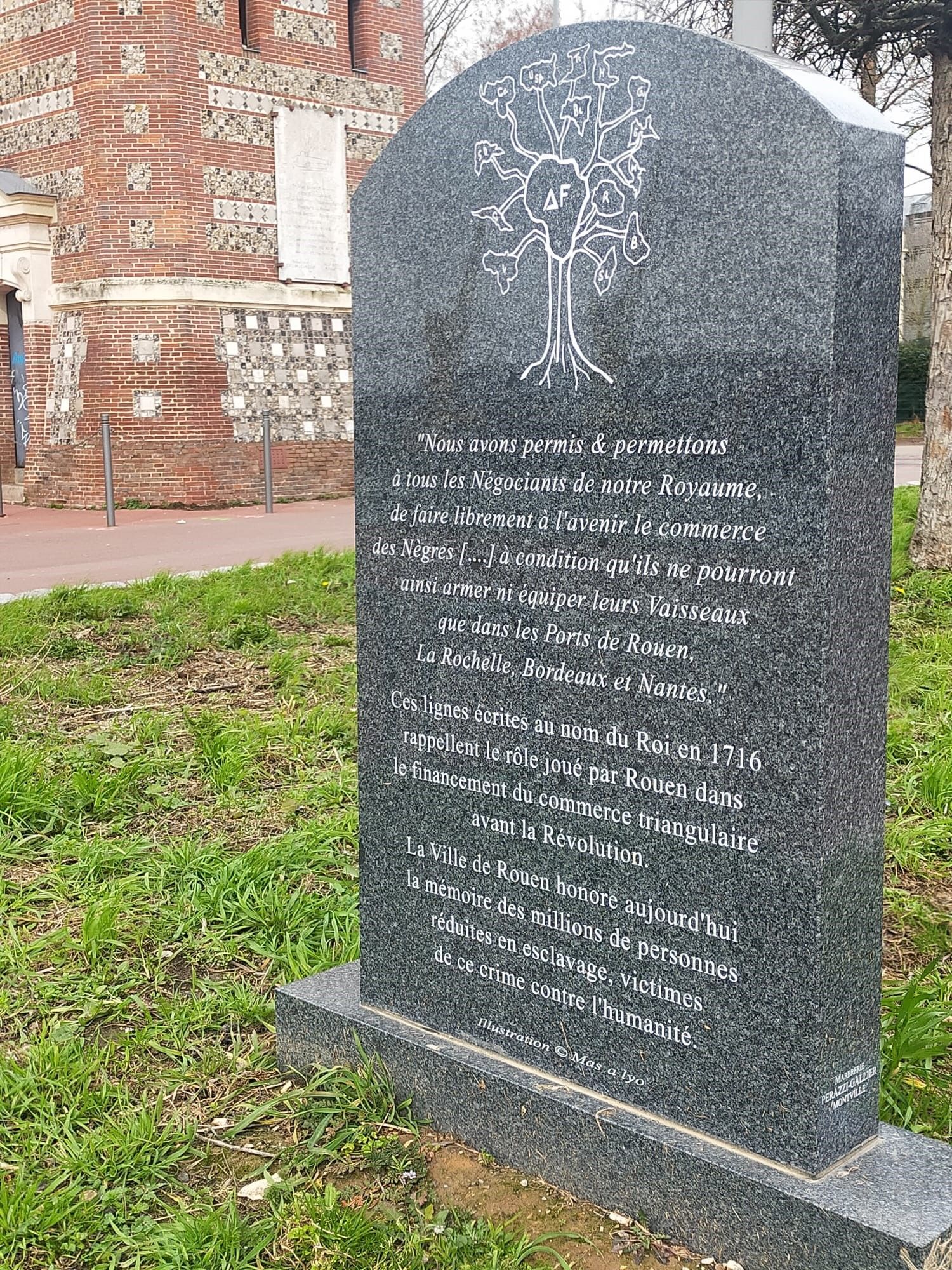
In 2022, the City of Rouen - concerned with preserving all memories and displaying all traces of history - commissioned the construction and inauguration of this monument as a memorial to offer the population a place of remembrance. It was the city's way of honouring the millions of people who were enslaved, and at the same time acknowledging Rouen's role in financing the transatlantic trade prior to the French Revolution. It is now on these grounds, on the right bank of the Seine, that the annual National Day of Remembrance of the Slave Trade and its Abolition is held, on the 10th of May.
Commemorative stele in memory of the victims of slavery in Rouen
(c) RMM
NLC.jpg)
In 1995, two cyclones swept across the beach of Sainte-Marguerite Bay, leaving human bones in their wake that no one expected. The following year, a team of archaeologists exhumed dozens of new tombs, dating from the 18th and 19th centuries, revealing the existence of an entire cemetery. This skull, from tomb S225, shows dental mutilation, which is very rare evidence of this person’s African origin and enslaved status. Since then, the archeology of slavery has become an essential discipline in helping to make the invisible visible.
LO CALZO, Nicola (1979-)
Skull of an anonymous enslaved person
Archaeological reserve of Sainte-Marguerite Bay,
Le Moule, Guadeloupe, 2012
FineArt pigment print - Hahnemühle Baryta paper
Rouen, Beauvoisine Museum - RMM, inv. 2023.3 PHOT
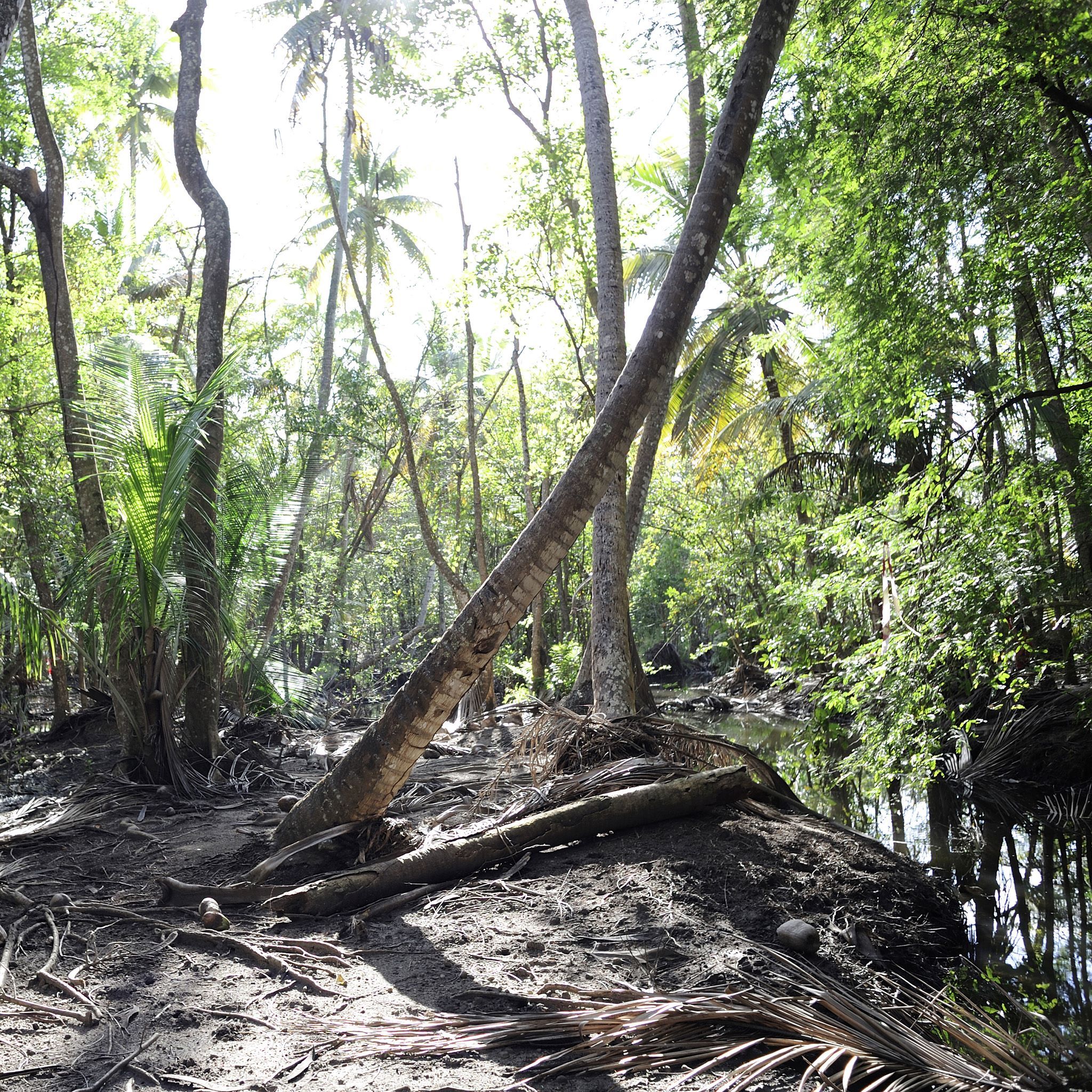
LO CALZO, Nicola (1979-)
Archaeological site of the indigo factory at Anse à la Barque, Guadeloupe, 2012
FineArt pigment print - Hahnemühle Baryta paper
Rouen, Beauvoisine Museum - RMM, inv. 2023.3 PHOT
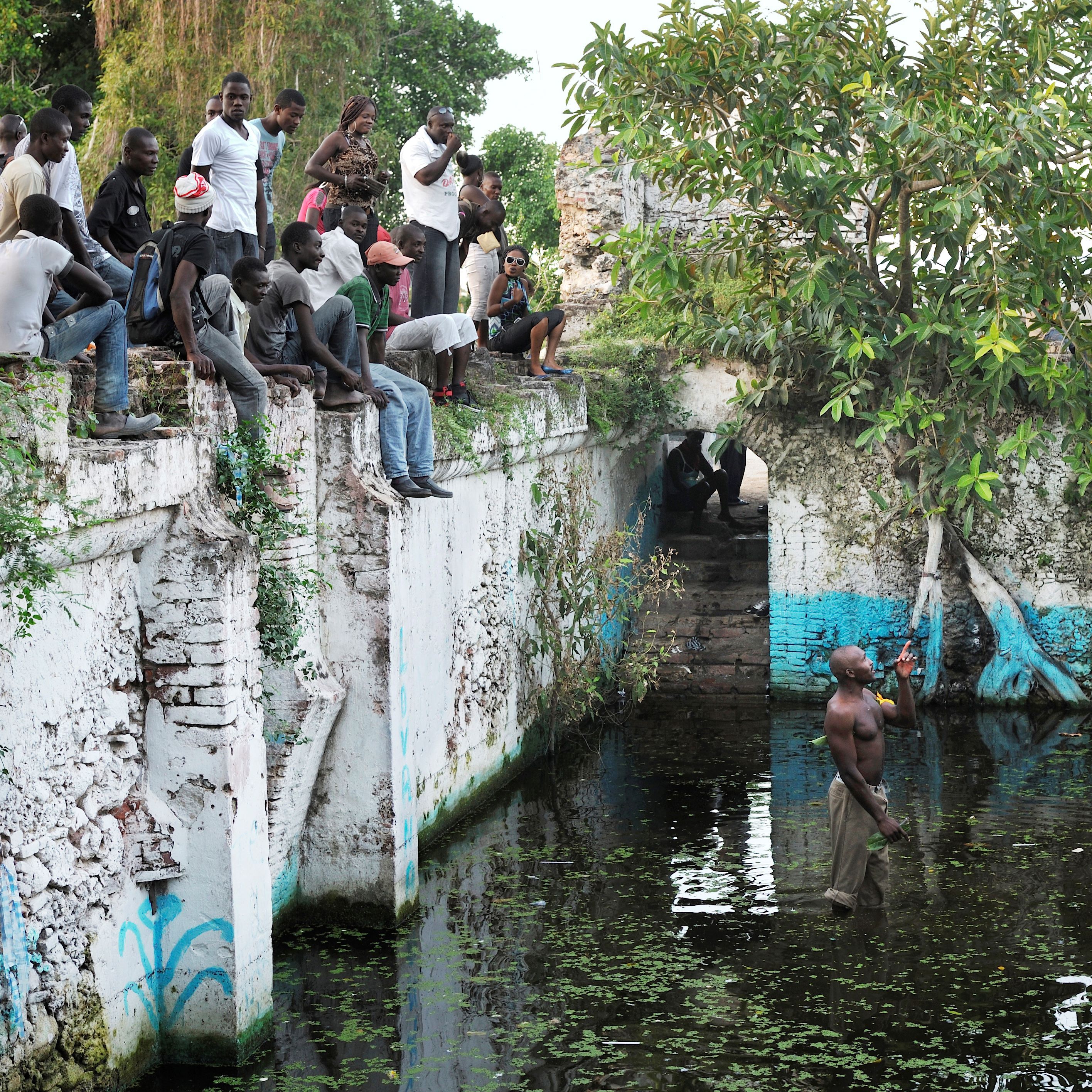
LO CALZO, Nicola (1979-)
Tuesday prayer on the ruins of the Duplaa dwelling, now known as Lakou Lovana, in Quartier Morin, 2012.
Séries Ayiti, Nicola Lo Calzo
(c) Nicola Lo Calzo
Associative initiatives
Launched during the Heritage Days in September 2012, the first memory trails in the footsteps of heritage resulting from the encounter between Europe, Africa and the Americas continues in 4 emblematic cities of France's colonial and slavery history: Bordeaux, La Rochelle, Le Havre and Bayonne. These tours are the only ones in France to be led by civil society, activists and to have access to this unique and hidden history, which truly gives a different perspective of 18th century France. These tours open up new avenues for social and civic reflection on the memory of slavery in France.